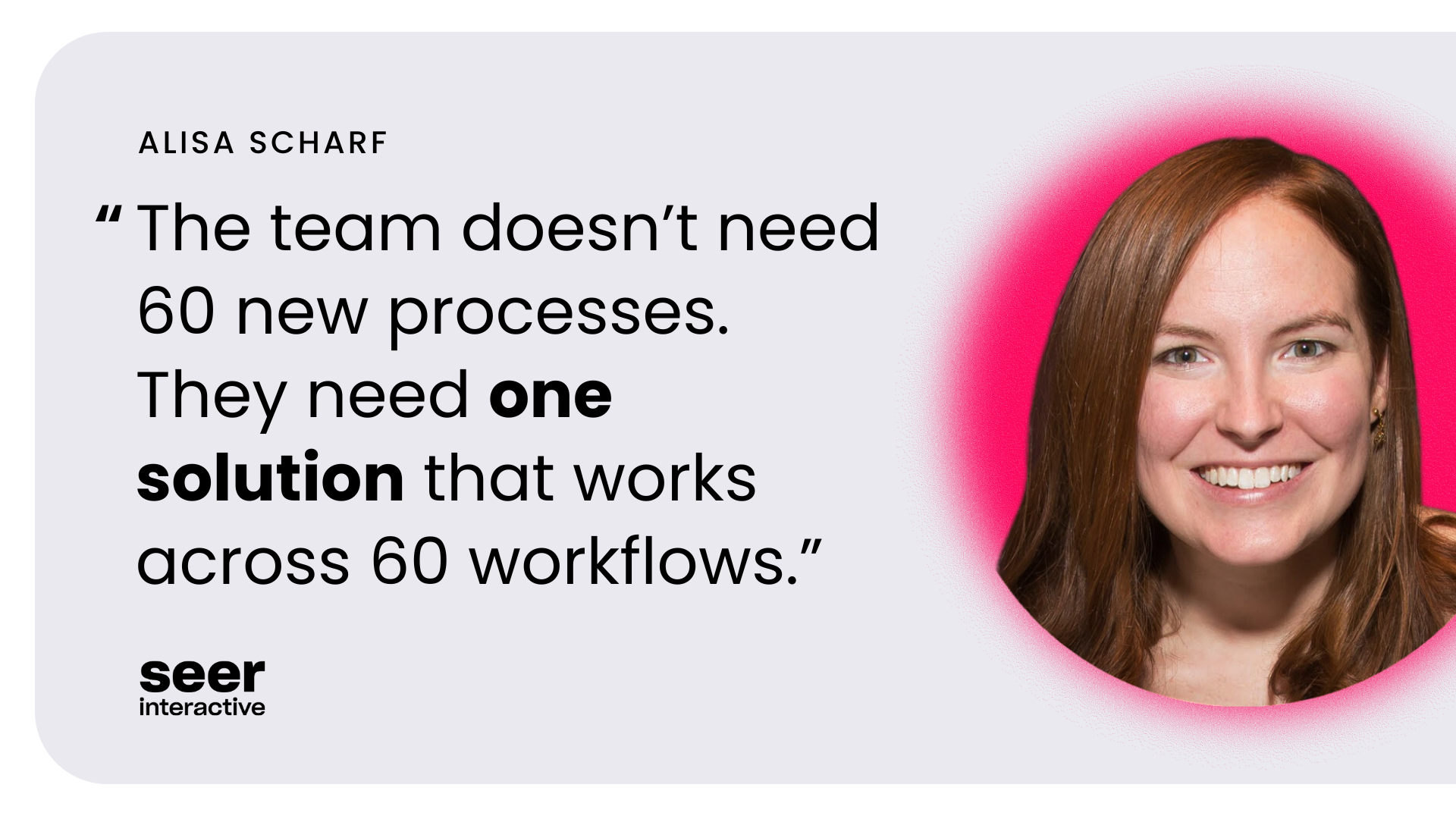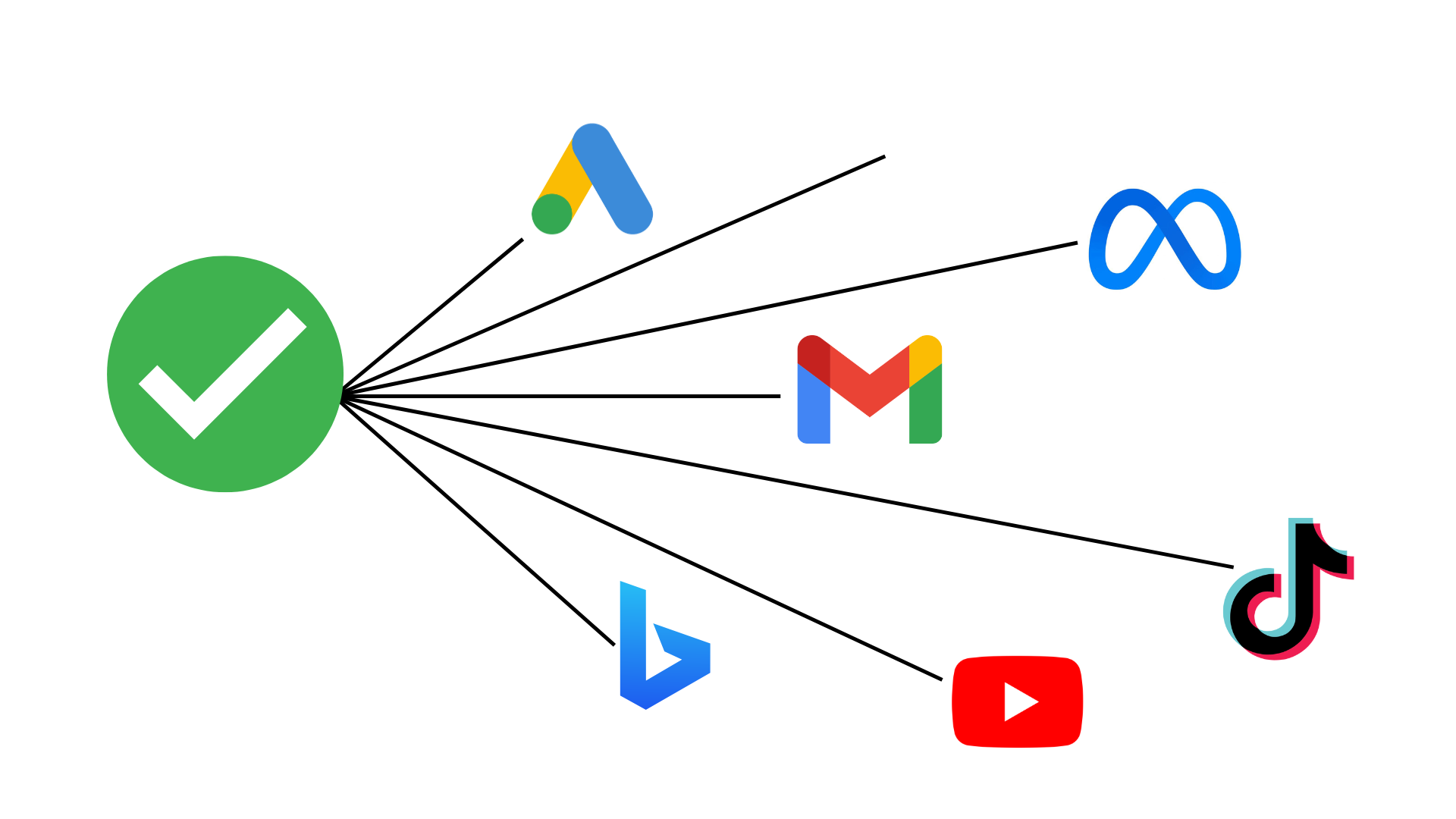Answer: No. Not if you want to hit your 2017 goals.
Seer Round Table
Welcome to Seer Round Table – content driven by Seer employees talking through the latest trends in marketing. This is the product of seasoned marketers challenging the trends and each other to simply get to the best solutions. We walk away with action plans, testing strategies, and new perspectives. In this edition, 14 folks sat down to tackle VOICE SEARCH MARKETING.
Why Should I Read This?
You can’t stop hearing about the “sexiest” new marketing trend that is a “must” for 2017: VOICE SEARCH. You want to know how to get your company ready for it.
What Will I Learn?
- Voice Search? Like Siri? Or talking to my remote? What is it?!
- How to include Voice Search in your 2017 strategy (spoiler: DON’T)
- But a little research never hurts, here’s what we’ve found
- Predictions for the future
What Is Voice Search
What the heck are we even talking about when we say “voice search.”
Sources are reporting stats like:
- “50% of searches will be voice by 2020” - comScore
- “From 2008 to 2016, Google Voice queries have grown 35x” - Google Trends
- “The voice recognition market will be a $601 million industry by 2019” - Technavio
From the testing and trends Seer saw, we became curious about what those predictions and stats actually meant for marketers. So we set in to get some data and ideas around this big new craze to see if it’s worth the hype. The conclusion we came to is it’s not [yet]!
To ground ourselves, we outlined a few examples of voice activated technology that could potentially be falling into this “voice search” bucket:
Voice Activated Tech |
Device Example |
Capabilities |
| Virtual Assistants |
Amazon Echo Amazon Alexa Google Home |
Home Control (temp, lights, etc.) Music Control Quick Facts Weather/News List Making Shopping (limited) |
| TV/Media Remotes |
Amazon Firestick Roku |
Change Channels/Media Find Shows of Interest Set Timers/Preferences |
| Mobile Assistants |
Siri OK Google |
Web Search Make Phone Calls Dictate Texts Find a Location |
| Browser Assistants |
OK Google Cortana |
Web Search |
As you can see, a lot of these types of “voice search” aren’t yet applicable from a marketing search perspective. Dictating a text or asking Siri to call your mom isn’t tapping the Internet for any info - we can’t get your business front and center so we can’t make you money. For right now, marketers don’t have a clear path forward for gaining from these queries.
Why We’re Not Sweating Voice Search in 2017
Just because we’re saying don’t sweat it doesn’t mean we’re not paying attention. So in the traditional Seer spirit, we did some stuff and learned some stuff and now we want to share it with you. Now let’s get into some of that sweet sweet data...
How We Researched
SantaWil enabled Seer employees to test the crap out of voice search:
Owed some peeps thank yous @SeerInteractive got a mix of these and echos - that's how I'm getting 15% of the co testing voice search for '17 pic.twitter.com/YVJZa94U77
— Wil Reynolds (@wilreynolds) December 21, 2016
- Read everything we could find
- Round table session with 14 Seer marketers for ideation on how to move forward
- Mined over 1 Million PPC queries
- Surveyed 100 folks about their voice activated technology usage (And still gathering data -- take this 1-minute survey to help us gain more insight)!
What We Found
We’ll lay it out in a simple equation for you. Because we’re data driven and all that jazz:
Limiting Technology
+
Very Little Usage
+
No Major Change in Search Behavior for Those Who Are Using
=
Not Enough Data to Strategize Differently
Ok Google, you’re right – we gotta back that up. Here’s our research:
PPC query mining
- Very little usage: 0.012% of 1,016,000 PPC keywords contained “OK, Google” (128 Seer Clients).
- No major keyword behavior change: 66% of “OK, Google” queries are being spoken the same way they would be typed.
Survey results
- Very little marketing applicable search usage: 61% of voice users report using voice to control applications and appliances around them vs. tap info from the Internet (phone calls, texts, playing music, etc.). Only 8% of daily voice tech users reported actively searching the Internet via voice.

- Technology is Limiting: 90% of users reported frustration with the current voice activated tech or they don’t use it at all:
- Ok 57%
- Bad 27%
- Great 10%
- Don't Use 6%
Hypothesis: The technology isn’t ready and the people aren’t ready.
So What Do We Do About It:
- Existing SEO tactics still apply
- Answer boxes play a role in quick facts
- Local listings can guide “near me” queries
- Keep up with 3rd party rating platforms like Yelp and Google Reviews
- Long tail keywords become more prevalent with natural language
- Continue to monitor data as pulse check for early indicators of:
- Industries in which voice will ramp first
- Changes in keyword behavior as usage increase (keep an eye out for natural language queries)
- *THINK* (but don’t act yet) – get your mind right for when the time comes
- Using the data I have now, what should I expect first? Top of the funnel queries? Folks diving right into shopping?
- What can you hypothesize a user at each stage of your marketing funnel would say into these devices? THEN SAY IT INTO THE DEVICES, see what happens.
- What integrations, if any, could make sense for my business/client with a virtual assistant?
Our Conclusion
As a performance based agency we focus on tactics where we can create a solid ROI. If there’s not a way to make a return on it right now or in the near future, it’s not worth a big time commitment. So until voice search technologies evolve or you can make money on setting alarms, calling mom, or dictating texts -- voice search is more hype than anything. With that, we’ve landed on the following action plan: we’ll keep up on the voice search baseline trends we’ve established while continuing to focus our clients on [potentially] “unsexy,” but ROI driven strategies that nail their 2017 goals.
Predictions For The Future:
As we look to the future, we’re guessing [read: hoping] voice search will help marketers:
- Fill in gaps in Google’s user knowledge by integrating further into moments of intent (what else can we learn about people to help optimize their online experience?)
- More integrated and organic native content options (did you see the Beauty and the Beast ad masquerading as news of the day on Google Home?!)
- Increases in content consumption through further integration in daily life
- Provide content delivery through “experiences” that interact with IOT integrations - think delivering piano lessons through voice activated coaching and a web connected keyboard! You can get a history lesson on Beethoven while learning to play “Symphony #5.” And maybe a badass marketer will slip a plug in there for the new web connected Fender Stratocaster so you can skip a couple centuries ahead and get the lowdown on how to play a little “Purple Rain.”
In Summary
Voice search and natural language processing will play a huge part in the future of marketing and we’re stoked about it! This will be a great step in the direction of humanizing tactics and creating an easier interface to help users -- that’s what we focus on here already, answering questions and filling human needs. But the technology and adoption are not there yet. Keeping on top of these innovations is something we do on our time. Wasting client’s time [and money] on investing in tactics that can’t be monetized is not in the cards for us.
Have you found any interesting insights around Voice Search in your own data? We want to learn more and see what you've been up to around this topic. Leave a comment so we can start the conversation! *This post was written by Seer Contributor, Erin Simmons 


